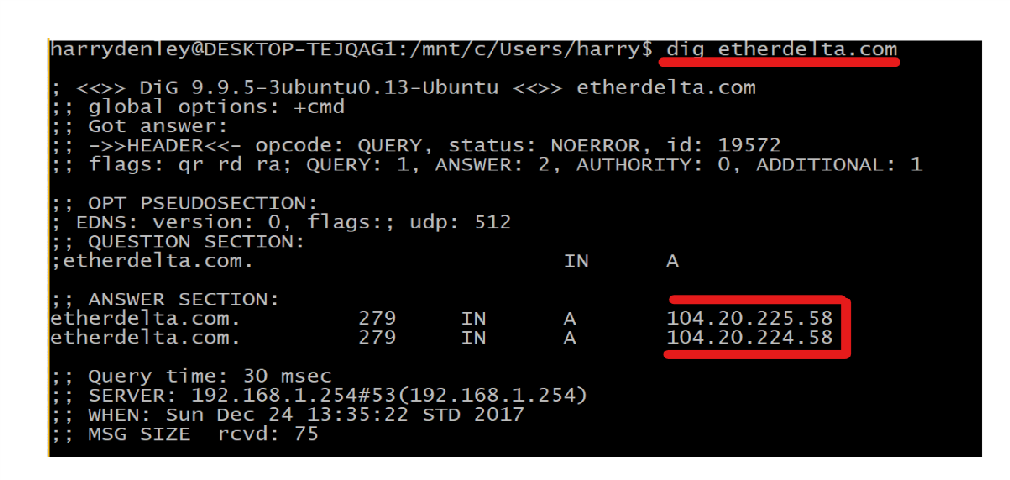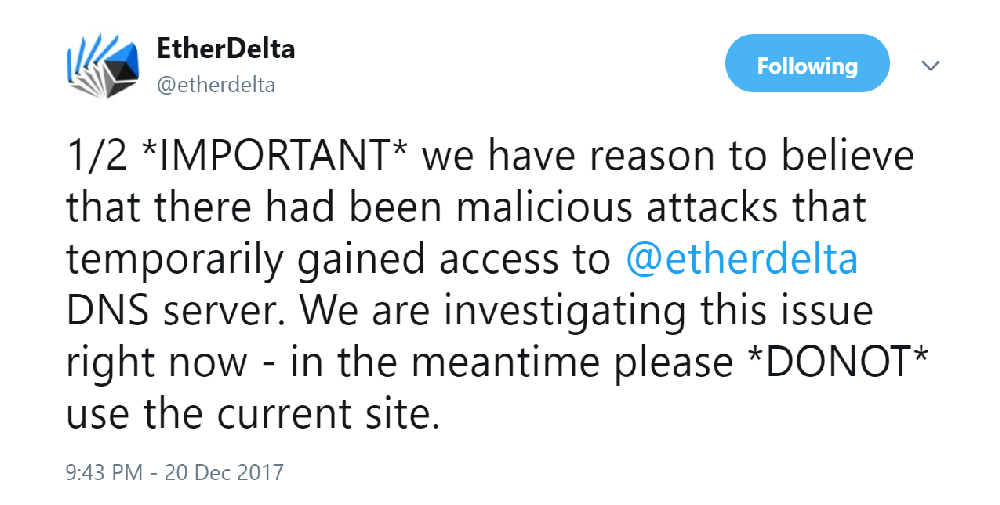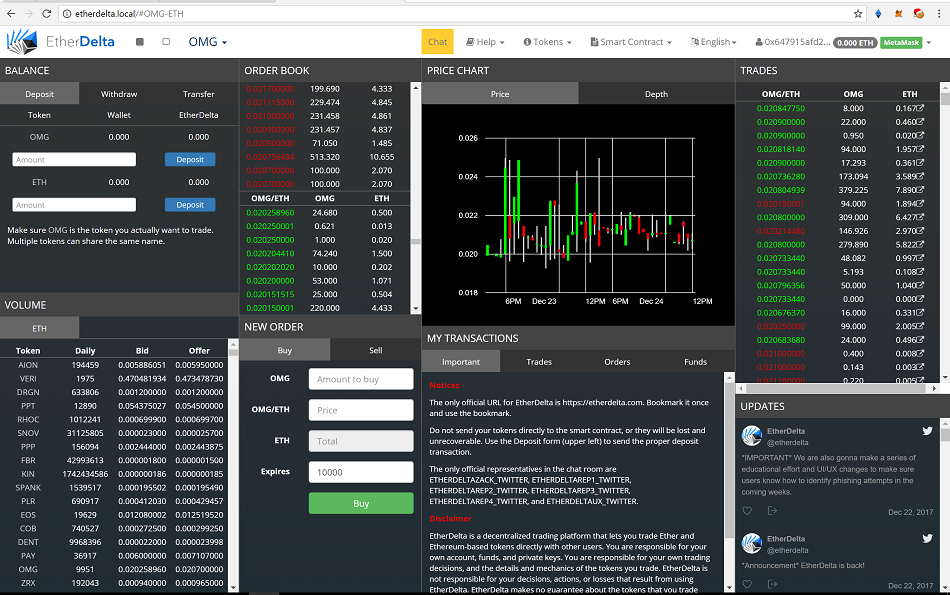~/How to ensure safety using EtherDelta
24 December 2017Recently EtherDeltas’ DNS was compromised which meant when you went to etherdelta.com it didn’t resolve to a server they controlled.
The attack was sophisticated because people believed they were on etherdelta.com so they were comfortable using it the way that they’ve previously used it. This caused to a big theft as the source was modified to drain users wallets if they loaded their wallet with their private key.
There are a couple ways to keep yourself protected from such attack vector though.
Check the nameservers
As the attack was a redirect to the attackers server using the nameservers (DNS) you can check to see if the domain is using the legitimate IPs before using the domain.
The legitimate IPs are;
104.20.224.58
104.20.225.58
You can run a dig etherdelta.com on the domain on your machine and check the IPs.

If you get something else, you can set your DNS server to Google’s public DNS which may have the correct IPs resolved.
Run EtherDelta locally (preferred method)
There’s no reason to rely on etherdelta.com when the source code is open and you can run the GUI locally in an environment you trust.
git clone https://github.com/etherdelta/etherdelta.github.io
Or manually download the source: https://github.com/etherdelta/etherdelta.github.io/archive/master.zip
Then follow this awesome tutorial: https://www.youtube.com/watch?time_continue=29&v=kXOTke0gFwc. Now you have the GUI on your local machine that is talking to the Ethereum smart contract, you know you can trust it.
Or, if you’re running Bash on Windows, you
can install apache2, and create a Virtual Host.
sudo apt install apache2
sudo cp /etc/apache2/sites-available/000-default.conf /etc/apache2/sites-available/etherdelta.conf
sudo nano /etc/apache2/sites-available/etherdelta.conf #change the DocumentRoot path (ie: /mnt/c/Users/harry/Documents/etherdelta.github.io)
sudo a2ensite etherdelta.conf
sudo service apache2 restart
Now open up C:\Windows\System32\drivers\etc\hosts in Notepad++ (or equivalent) and add a local entry at the bottom of the file.
127.0.0.1 etherdelta.local
Now flush your local dns and everything is setup.
- Open
cmdon Windows - Run
ipconfig /flushdns
Running it locally means you won’t get any automatic updates that are pushed to production (etherdelta.com) automatically
unless you re-download/reset the branch to origin/master, so it’s best to follow @etherdelta on Twitter to
keep up to date with new releases.

